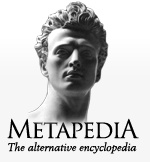
When I was a youngster, back in the days of corded telephones attached to the walls and middle-schools with one room full of Royal typewriters dedicated to teaching kids how to type, my grandparents thought to help my brother and I start our academic careers by purchasing a brand-spanking-new set of the Encyclopedia Britannica, with a subscription to the yearly update. This latter feature was important, as it allowed for updates to the core information found in the set: recent political events, scientific discoveries, and updates—if needed—to previously stated information.
These updates were done once. Yearly.

It is hard to imagine now, but back in the old days, facts did not change very often: it didn’t matter what year you were reading the Encyclopedia, Rome still fell in 476 when Odoacer deposed Romulus Augustus and proclaimed himself ruler of Italy; the Magna Carta was signed by King John of England in 1215; on April 12, 1861, Confederate batteries opened fire on Ft. Sumter in Charleston Harbor; and so on.
Facts were facts and opinion, “control of the narrative” as they call it today, played no part. Perhaps more importantly, the entries in the Encyclopedia were written by paid scholars and edited by professionals. Sadly, the print-edition of the Encyclopedia stopped in 2012 after 244 years. It is still available, online, for a monthly subscription.
But of course, now we have Wikipedia, and it is free. Why pay for what you can get free? Information is information, right?
Evidently not, at least according to Wikipedia.

In the previous blog entry I used the word “Caucasian”. My auto-spell said I spelled it wrong (it turns out it should be capitalized), so to see where I erred, I simply did a quick web-search for the word. What popped up stopped me in my tracks: the first response was a Wikipedia article on “Caucasian” that states unequivocally “The Caucasian race…is an obsolete racial classification of humans based on a now-disproven theory of biological race.”

WTF? I guess I missed the memo informing everyone that the theory of biological race was now disproven. A link in the aforementioned article goes on to state “Today, the consensus among scientists is that race is a social construct, and that using it as a proxy for genetic differences among populations is misleading.” Again, I ask, WTF?

Now, this post is not about the current “debate” surrounding genetics and racial classification. I will be coming back to that at a later date, however, as I’ve read a couple of good books recently on the subject.
What this post is about is how Wikipedia misleads its readers by informing them of what they deem to be true and ignoring facts or counter-arguments that are not in-line with their woke narrative.
Curious to see if this was a one-off, and if not, how deep the rot might go, I searched other topics that the so-called “Liberals” in this country have rallied around over the past few years.
The first thing I noticed was that for articles dealing with the pro-Left’s favorite subjects, no alternative point of view was offered, or, if it was, the alternative point of view was itself refuted. For example, I looked at Wikipedia’s entry for “Antifa”. And while it does mention the group’s use of violence and briefly touches upon the hypocrisy of claiming to be anti-fascist while denying others the right to peaceably assemble and speak, the article goes on to quote, at length, several sources who defend Antifa’s goals and methods:
Historian Mark Bray, who has studied the antifa movement, stated that “[g]iven the historical and current threat that white supremacist and fascist groups pose, it’s clear to me that organized, collective self-defense is not only a legitimate response, but lamentably an all-too-necessary response to this threat on too many occasions.”Alexander Reid Ross, a lecturer in geography and an author on the contemporary right, has argued that antifa groups represented “one of the best models for channeling the popular reflexes and spontaneous movements towards confronting fascism in organized and focused ways.

Likewise, a woke Wiki article will often state a negative, then soften it with a positive. For example: “According to the Southern Poverty Law Center (SPLC), designating antifa as a domestic terrorist organization is dangerous and a threat to civil liberties. The SPLC also reported that antifa members “have been involved in skirmishes and property crimes, ‘but the threat of lethal violence pales in comparison to that posed by far-right extremists.”
Another example: The entry for Black Lives Matter is primarily positive and favorable to the subject. When it finally works its way down to criticisms, those critics are themselves questioned: “In his 2018 book The Once and Future Liberal, Mark Lilla criticizes Black Lives Matter as part of his broader left-wing critique of identity politics. Though he agreed with their aims, he called their rhetoric “a textbook example in how to not build solidarity”, arguing that the campaign alienates people with their negative attitude toward American society and law enforcement and with their overbearing tactics… Lilla has in turn been criticized for “trolling disguised as erudition” and of “making white supremacy respectable, again”
Wikipedia uses another technique, also displayed in the BLM article, to control the narrative: glossing over inconvenient facts. For example, it addresses the egregious financial scam perpetrated by the movement’s leaders with one short paragraph:
Mismanagement of funds
Allegations of mismanagement of funds by the organization Black Lives Matter Global Network Foundation were raised after funds were used to purchase a home that cost $6 million in southern California to be used as a facility for a Black artists fellowship. The property included six bedrooms, a recording studio, and a swimming pool.
That’s it. That’s all it says about the tens-of-millions of dollars embezzled and misspent by the BLM big-wigs.

I could go on. I looked at many different topics, and noted essentially the same methodology: For pro-Left topics, facts are skipped or glossed over if deemed counter-productive to the agenda driven argument, or, if a counter-argument is raised, it is refuted in turn. For pro-Right arguments, the opposite is true: facts that paint the subject in a positive light are avoided, and if presented, then a counter-argument is offered with no refutation.

Then I noticed something else: as mentioned above, the old, reliable Encyclopedia Britannica used scholars and paid editors. Wikipedia, on the other hand, is famous for eschewing that approach and using an army of volunteers to write their articles. They’re called Wikipedians. The original theory or methodology was that anyone could edit an article and that by consensus, the truth would emerge. I myself have edited more than one article, providing small corrections or suggesting alternative sources of information.
But lately this methodology has changed. Where some “non-controversial” topics still allow for open editing, any topic deemed sensitive, important, woke, or where counter-arguments and alternative views or facts could be stated that call into question the main premise of the article, are “closed”.
For example, if you look up “Caffeine”, you will see on the top-right part of the page an option to “Edit” the article. However, if you go the article for “Coffee”, you will see that it is semi-protected and does not offer the “Edit” option. Why? Because, “caffeine”, being a chemical, is primarily a subject dealing with the objective science of chemistry, whereas “coffee” involves the sociological elements of the slave trade, climate change, politics, economics, fair-use, and water rights. After all, they’ve got to keep their stories straight.

Hmm.


The myth of Wikipedia is founded on two assumptions, both erroneous: That they are unbiased and they need your money.
As regards the former, after a little hunting around, it turns out that Wikipedia itself dispels that notion:
“Collectively, findings show that Wikipedia articles edited by large numbers of editors with opposing ideological views are at least as neutral as other similar sources, but articles with smaller edit volumes by fewer—or more ideologically homogeneous—contributors are more likely to reflect an editorial bias. Multiple studies, including two from the same Harvard researchers, found a left-wing bias at Wikipedia in both article content and editor sanctioning.” Notice how they get that little “dig” in there about two studies being from the same researchers? Anything to plant the seeds of doubt. Elsewhere they state:
“Wikipedia articles are required to present a neutral point of view. However, reliable sources are not required to be neutral, unbiased, or objective. Sometimes non-neutral sources are the best possible sources for supporting information about the different viewpoints held on a subject.”
Indeed, Wikipedia co-founder Larry Sanger has now distanced himself from the very behemoth he created, saying, “Wikipedia’s “NPOV” [Neutral Point of View] is dead. The original policy long since forgotten, Wikipedia no longer has an effective neutrality policy. There is a rewritten policy, but it endorses the utterly bankrupt canard that journalists should avoid what they call “false balance.” The notion that we should avoid “false balance” is directly contradictory to the original neutrality policy. As a result, even as journalists turn to opinion and activism, Wikipedia now touts controversial points of view on politics, religion, and science.”

As regards the need-your-money myth, make no mistake, the Wikimedia Foundation is doing quite well, thank-you. Major benefactors include Google, Apple, AmazonSmile, and the Alfred P. Sloan Foundation. Patrons include Bloomberg, Boeing, Intel, and Adobe. Indeed, during a previous fundraising campaign, Andrew Lih, associate professor of journalism at American University, and currently Wikimedian-in-residence at the Smithsonian Institution as well as Wikimedia Strategist at The Metropolitan Museum of Art in New York City, said, “People will come up to me during fundraising season and ask if Wikipedia’s in trouble. I have to reassure them that not only is Wikipedia not in trouble, but that it’s making more money than ever before and is at no risk of going away.”
That’s an awfully nice, and unusual, position for a so-called “non-profit” to be in.

Comrades, I’m not saying don’t use Wikipedia. I, myself, find it useful for a quick fact or two (ie., when was someone born? Where does the element Tritium come from?, etc). I am saying don’t trust everything you read there to be fair, accurate, unbiased, or objective. If something doesn’t smell right, look into it. Follow the links to their footnotes to see what they are using for sources. If the page is “closed”, note the arguments presented and the corresponding lack of other opinions. Think of Wikipedia as a starting-point, not the destination. As a counter-point, consider cross referencing with other sources like Metapedia, a site I recently discovered and, although I am only now becoming familiar with it, was pleased to noticed their homepage featured a sculpture by Arno Breker. That bodes well. If you don’t know who he is, look him up. But not on Wikipedia.

Amerika Erwache!

Update: Found another interesting encyclopedia site that facilitates searching multiple sites at once: EncycloReader


Leave a Reply